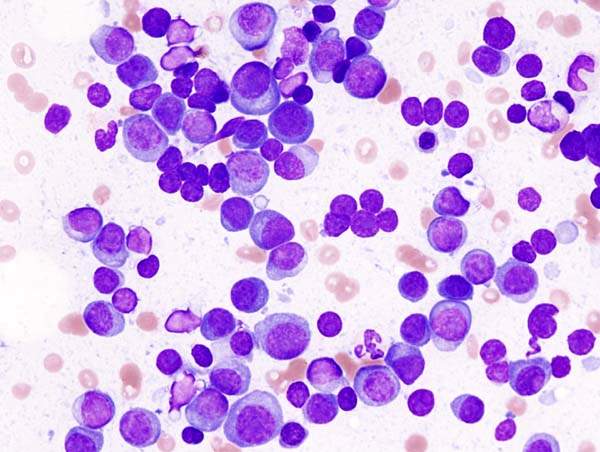
Researchers from the Saint Louis University School of Medicine have found a multiple sclerosis drug could be used to treat severe pain experienced as an effect of the myeloma treatment drug bortezomib.
Bortezomib is known to cause chemotherapy-induced peripheral neuropathy (CIPN) in around 40% of patients. CIPN is a painful side effect of numerous cancer treatments which often causes patients to discontinue treatment or to report lower quality of life as a result of its effects.

Discover B2B Marketing That Performs
Combine business intelligence and editorial excellence to reach engaged professionals across 36 leading media platforms.
“This growing problem is a major unmet clinical need because the increased efficacy of cancer therapy has resulted in nearly 14 million cancer survivors in the United States, many suffering from the long-term side effects of CIPN,” Saint Louis University School of Medicine professor of pharmacology and physiology Daniela Salvemini said.
Salvemini and her team found bortezomib accelerates the production of a class of molecules called sphingolipids, which are linked to neuropathic pain. Rats administered with bortezomib were found to accumulate two sphingolipid metabolites: sphingosine 1-phosphate and dihydrosphingosine 1-phosphate. These were found in the spinal cord at the same time that signs of neuropathic pain were also seen.
The team hypothesised that CIPN was caused by a cell surface receptor protein called S1PR1, which is activated by sphingosine 1-phosphate and dihydrosphingosine 1-phosphate. S1PR1 was seen on the surface of specialised nervous system support cells known as astrocytes, leading to neuroinflammation and enhanced release of the excitatory neurotransmitter glutamate.
Through inhibiting the production of sphingosine 1-phosphate and dihydrosphingosine 1-phosphate, the researchers were able to prevent the animal models from developing CIPN as a result of bortezomib. Additionally, S1PR1-inhibitors were shown to prevent rats from developing CIPN. One such inhibitor was the multiple sclerosis drug fingolimod.

US Tariffs are shifting - will you react or anticipate?
Don’t let policy changes catch you off guard. Stay proactive with real-time data and expert analysis.
By GlobalData“Because fingolimod shows promising anticancer potential and is already FDA-approved, we think that our findings in rats can be rapidly translated to the clinic to prevent and treat bortezomib-induced neuropathic pain,” Salvemini said.
Fingolimod does not prevent bortezomib from killing myeloma cells, instead enhancing its effects and inhibiting tumour growth itself.
Myeloma is a form of cancer which develops in bone marrow cells known as plasma cells. It can occur anywhere in the body which has bone marrow, including the pelvis, spine and ribcage. As it can occur in several places in the body, it is often called multiple myeloma.
The study was published in the Journal of Experimental Medicine.



